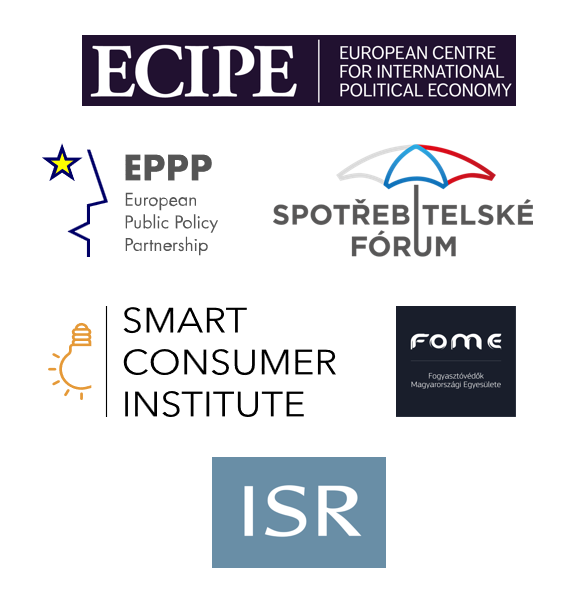The Digital Markets Act (DMA) was introduced as a landmark piece of EU legislation to change how consumers interact or engage with large online platforms. By restraining the power of the so-called gatekeepers, Brussels aimed to promote greater competition, improve privacy protections and make digital services more affordable.
Two years into its application, however, the reality on the ground in the EU, especially for the Central and Eastern European (CEE) Member States, has proved far more sobering. Consumers have seen little evidence of cheaper or improved digital services. Many report greater friction in their online experience, while confidence and trust in platform privacy remains low.
Most strikingly, consumer behaviour itself has hardly shifted: reliance on a handful of dominant players such as Google, Meta, and Apple still prevails. The DMA, while ambitious in scope, has failed to deliver on its central promise of empowering Europe’s digital citizens.
New study by the European Centre for International Political Economy (ECIPE) and the European Public Policy Partnership (EPPP) concludes that Europe must either consider replacing the DMA with a more flexible case-by-case enforcement or, at the very least, reform it by removing obligations that neither enhance consumer welfare nor improve market contestability.
The primary aim of the study was to assess the lived experiences of consumers under the DMA, moving beyond policy theory and legal design to examine how end-users actually perceive and respond to regulatory changes. A total of 3,500 consumers were interviewed across seven CEE countries: Slovakia, Czechia, Hungary, Slovenia, Croatia, Latvia, and Lithuania, with 500 respondents per market.
Fundamental misalignment
The results highlight a fundamental misalignment between the European Commission’s ambitions and consumer realities. Promised gains in affordability have not materialised; instead, some measures have made services more cumbersome or less user-friendly. Privacy protections, far from empowering consumers, have often been monetised in ways that exclude the majority unwilling to pay.
Contestability, the cornerstone of the DMA, remains an aspiration rather than an observable reality, as network effects and ingrained habits keep consumers locked into dominant platforms. The law, in its current form, risks imposing costs without securing benefits: consumers tolerate more friction and fewer integrated features while still failing to see meaningful alternatives. If this trajectory continues, Europe risks repeating the mistakes of previous technology cycles, where regulation designed with good intentions inadvertently slowed innovation and limited consumer choice.
Sea of paradoxes
When we parse the details, several paradoxes become evident. More than half of consumers say they support strong rules for digital platforms, even if this slows the rollout of new features, yet 39% report needing more steps to complete tasks that were once simple, and about one-third find their digital experiences less seamless and more confusing since DMA-related changes.
Similarly, while 55% say they are more concerned about online privacy today, between 60 and 69% continue accepting extensive data collection in exchange for free services, and only a small single-digit minority are willing to pay for ad-free or privacy-enhanced subscriptions such as Meta’s paid plan – effectively turning privacy into a premium product rather than a universal safeguard.
The situation is no better for contestability: 70% of users rely on Google Search multiple times per day, more than 75% use Facebook daily, nearly half use no alternatives to Google or Meta services at all, and over 60% rely exclusively on LinkedIn for professional networking.
Finally, the regulation itself remains largely invisible to those it is meant to protect – around 80% of consumers are unfamiliar with the DMA, and many cannot link observed changes in their digital services to the regulation at all.
What’s next for European consumers?
Europe must act decisively. While our recommendations are based on evidence from the first two years of the DMA’s application, the findings are already robust enough to justify a thorough re-evaluation of the current regulatory approach. The first and most effective option is to repeal the DMA entirely and return to case-by-case competition enforcement, guided by evidence and grounded in consumer welfare. This would remove blanket rules that assume harm before it occurs, prevent rushed compliance measures that degrade service quality, and allow regulators to target demonstrable harms with proportionate and transparent remedies.
As a second-best solution we suggest targeted reform. Obligations that do not clearly enhance consumer welfare should be repealed or suspended. Interoperability requirements, marketplace access rules, and prohibitions on self-preferencing should only be enforced where robust safeguards exist for privacy, cybersecurity, product integrity, and liability. In practice, prohibiting self-preferencing has removed integrated features valued by consumers while delivering little measurable benefit to competition. Where neutrality mandates reduce service quality or convenience without creating viable alternatives, they should be suspended pending further impact assessment.
Both approaches serve as well-substantiated guidance for EU legislators, showing how digital regulation can be refocused on what truly matters: affordable services, seamless functionality, strong safety, and genuine competitive choice. Lawmakers now have the opportunity to move beyond measures that look effective on paper but fail in practice and take decisive steps to make the digital market work for all Europeans.
Signed,
